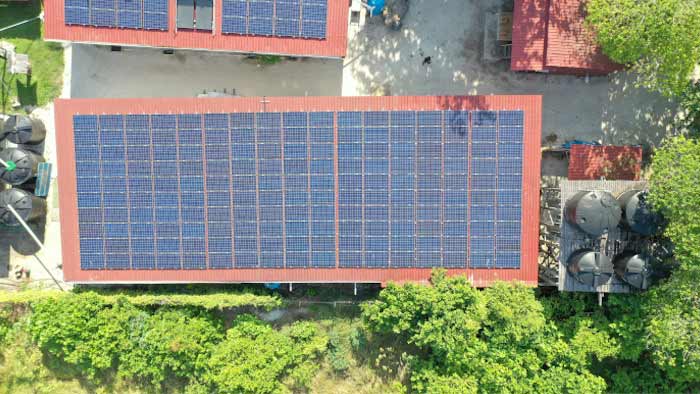Menu
For dive centres, the first step in contributing to marine conservation is minimising your own adverse impacts on the marine environment through the implementation of eco-friendly practices and technologies. As well as working with Scuba Junkie to make all SJ resorts and dive shops as eco-friendly as possible, we engage with other operators at the Malaysian International Dive Expo (MIDE) and the Asia Dive Expo (ADEX).
Below you will find more information about some of the practices and technologies that we encourage – all of which have been implemented at Scuba Junkie’s Mabul Beach Resort. If you have any ideas on others that we could promote then please get in contact with us.
Green Fins, an initiative under the UN Environment Programme (UNEP), assesses dive centres annually based on an internationally recognised set of environmental standards. Dive centres are given feedback and guidance on how to improve and can work their way towards Top Ten status.
Scuba Junkie’s Mabul Beach Resort has featured on the Top Ten list since joining Green Fins in 2014, a feat made very difficult given the size of the dive operation.
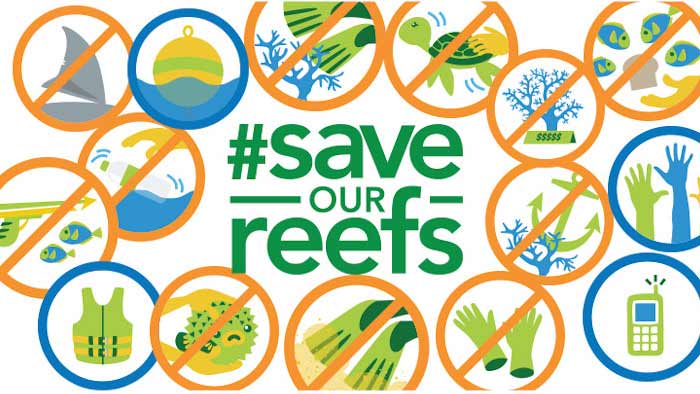
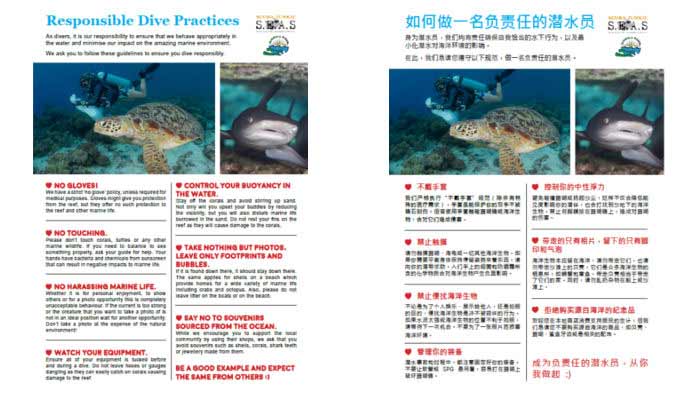
We have produced two separate documents that outline responsible diving practices – a comprehensive document suitable for dive staff and a guest friendly version suitable for display in resorts and on boats. Both documents provide explanations to ensure people fully understand the reason behind the recommendations. These documents are available upon request.
Many common sunscreens contain chemicals such as oxybenzone and octinoxate, which are known to cause coral bleaching and deformities in fish. Dive operators should raise awareness of this with their guests and encourage them to bring reef safe alternatives. Operators should also endeavour to sell reef safe sunscreens in their shops.
Scuba Junkie have a ‘Know before you go’ document that is sent to guests along with their booking confirmation. This document helps to better prepare guests for an eco-friendly trip.
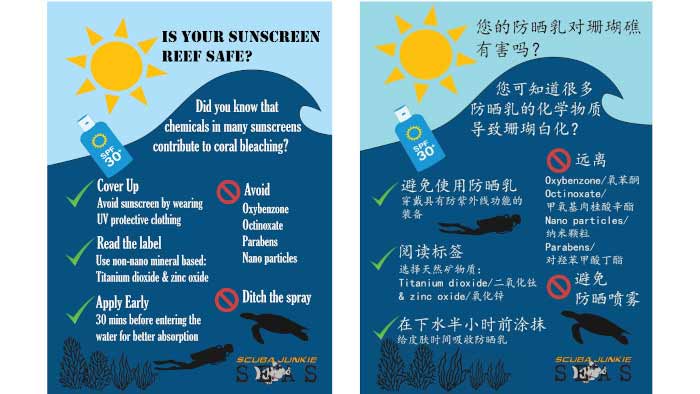
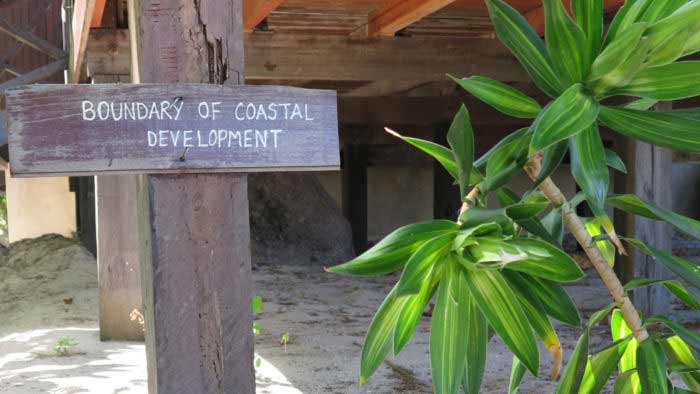
Coastal development can have major adverse environmental impacts, both during the construction and operational phases. It is vitally important that these are considered and used to guide the decision-making process.
The entire Mabul Beach Resort, including guest accommodation, restaurant, bar and staff accommodation is located a minimum of 60 metres from the high tide line to ensure minimal impact on the sea turtle nesting beach and feeding grounds (sea grass beds) in the shallow water in front of the resort.
Minimising plastic consumption through the banning of single-use plastics and replacing them with reusable alternatives, as well as recycling/upcycling projects are simple steps that all operators should take to minimise the amount of plastic waste that they are responsible for producing.
The Mabul Beach Resort uses biodegradable cleaning products where possible and buys large containers to refill the smaller, user-friendly containers. All rubbish is separated into five waste streams to facilitate recycling/upcycling.
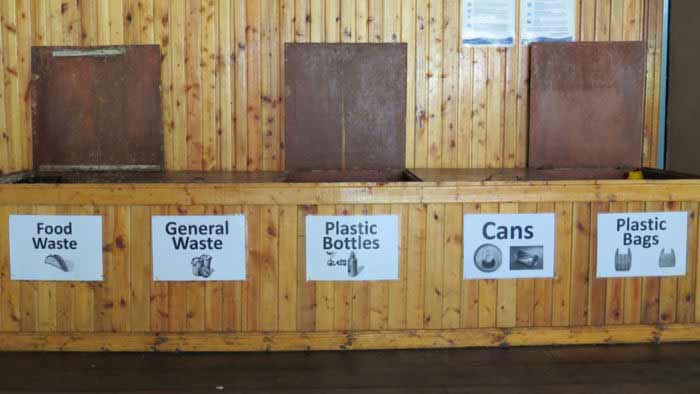
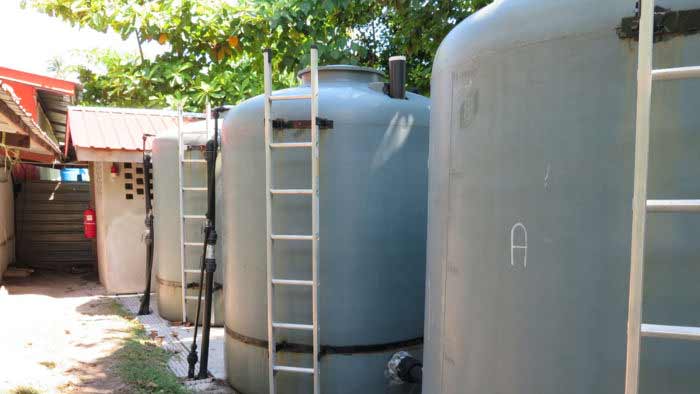
A major issue faced by all island-based resorts is waste management – including sewage and ‘grey’ water. Dive operators should at the very least install a basic system, for example a septic tank, and upgrade this when funds are available.
The Mabul Beach Resort has a Tomher Environmental Infinity BioSolv sewage system, which has the top level of European grading. This produces freshwater and fertilizer, both of which are used on the resort’s garden.
Freshwater availability is another issue for all island-based resorts. Rainwater collection is a very effective way to provide enough supplies, especially in the tropics where downpours are substantial.
The Mabul Beach Resort has an extensive rainwater collection system that ensures a self-sufficient water supply. All bungalows and resort buildings have their own water storage tanks and solar water heaters capable of supplying water for all taps, showers and toilets.
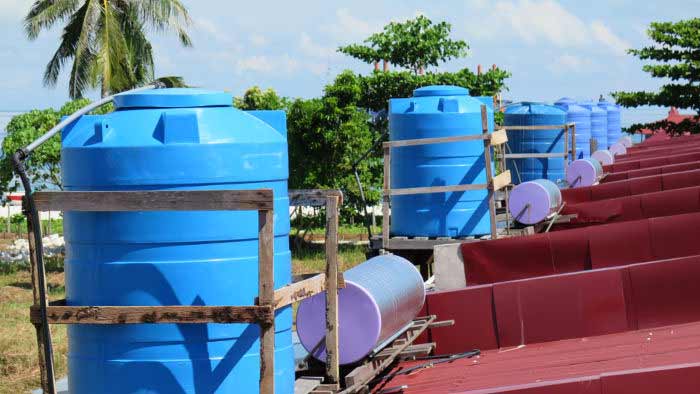
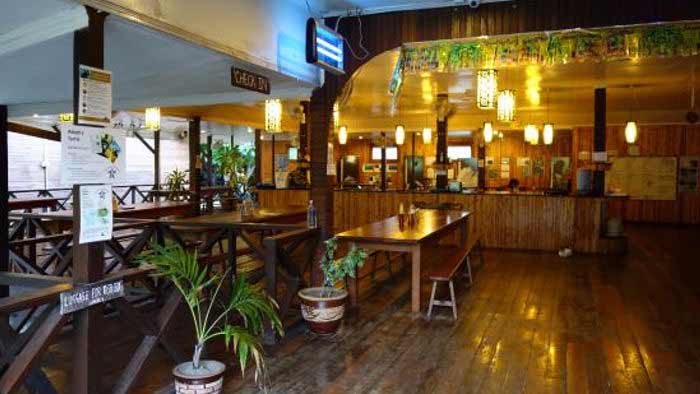
Indiscriminate commercial fishing practices, such as long-lining and trawling, as well as destructive practices, like fish bombing and cyanide fishing, have a huge impact on the health of our oceans. Supporting these practices by serving their catch is driving the over-exploitation of the ocean and making it more challenging for remote coastal communities to provide for their families. Dive resorts should only serve seafood that they can guarantee comes from sustainable sources. If this is not possible, they should refrain from serving seafood and provide alternative sources of protein. The Mabul Beach Resort is unable to provide seafood for these reasons.
Island-based resorts often rely on diesel generators for power. Not only is this noisy for guests, but more importantly it contributes to greenhouse gases and climate change. Installing power efficient lighting/devices is a logical first step to reducing reliance on fossil fuels. Moving to renewable energy sources is the ideal solution. It might be expensive up front, but it is cheaper in the long-run.
In 2019, Scuba Junkie contracted Swimsol to install a solar energy system at the Mabul Beach Resort that is capable of powering the entire resort during daylight hours.
